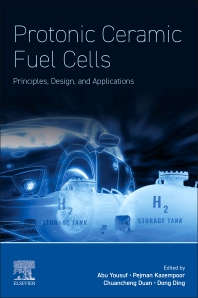Books in Energy and power
Books in Energy and power
Elsevier’s Energy and Power Collection offers the latest innovations in the energy transition with a focus on content that supports and advances the reduction of CO2 emissions. The collection includes content on solar, wind, geothermal, nuclear, biofuels and bioenergy, hydrogen and fuel cells, and addresses topics such as energy storage, efficiency, management, economics, and policy, among others.

Electric Vehicle Conductive and Wireless Charging Technologies
Power Electronics for Grid Integration- 1st Edition
- September 1, 2026
- Yiming Zhang + 1 more
- English

Applied Thermodynamics
Low Temperature and Renewable Energy Systems- 1st Edition
- September 1, 2026
- Andriy Redko + 1 more
- English

Solar Stills for Sustainable Water Purification
Innovations, Policies, and Applications- 1st Edition
- September 1, 2026
- Zafar Said + 1 more
- English

Protonic Ceramic Fuel Cells
Principles, Design, and Applications- 1st Edition
- September 1, 2026
- Abu Yousuf + 3 more
- English

Metal-ion Capacitors
Fundamentals, Materials, Characterization, and Developments- 1st Edition
- September 1, 2026
- Debasish Sarkar
- English

Drill Bits for Energy Industry
- 1st Edition
- September 1, 2026
- Robert (Bob) P. Radtke + 2 more
- English

Wind Turbine Wakes
Physics, Modelling and Mitigation Strategies- 1st Edition
- September 1, 2026
- Xiaolei Yang
- English

Encyclopedia of Renewable Energy Engineering
- 1st Edition
- September 1, 2026
- Frede Blaabjerg
- English

Energy Storage and Hydrogen Integration for Sustainable Solutions
- 1st Edition
- September 1, 2026
- Mousa Marzband + 1 more
- English

Safety and Reliability of Offshore Renewable Energies
- 1st Edition
- September 1, 2026
- Rouzbeh Abbassi + 3 more
- English